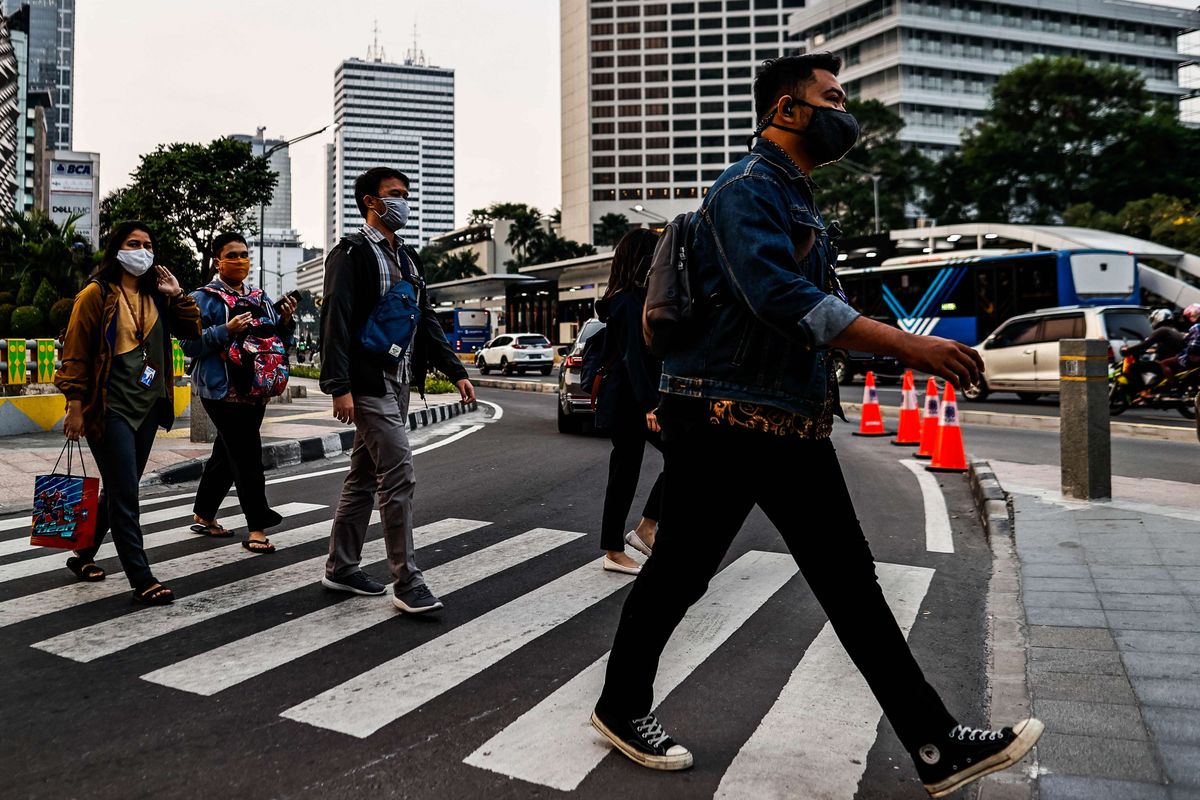Public Confidence in Democracy Takes a Hit from Covid-19 in Indonesia

JAKARTA, KOMPAS.com – Indonesia’s democratic institutions took a hit from Covid-19 as shown in a recent survey by polling agency Saiful Mujani Research & Consulting (SMRC).
“Sixty-seven percent of respondents said they are extremely satisfied or satisfied with democracy in Indonesia during the Covid-19. On the other hand, 27 percent said they are dissatisfied or extremely dissatisfied with democracy during the pandemic,” said Saiful on August 23.
“This is a 7 percentage points drop from 74 percent of respondents who expressed satisfaction with democracy before Covid-19.”
However, 67 percent is still a major improvement from June when the Indonesian public’s confidence in the country’s democracy fell to 59 percent.
Also read: Survey Says Most Indonesian Biz Owners Upbeat on Jokowi Covid-19 Response
He noted a similar decline in confidence of Indonesia’s national security during the pandemic. “Fifty-two percent of respondents said they are optimistic or very optimistic about Indonesia’s security situation, while 15 percent disagreed or strongly disagreed.”

“This differs from the confidence levels of over 66 percent in security at the beginning of March 2020, just before the pandemic started.”
Saiful said the weakening confidence levels coincided with a police report stating that crime increased by 7 percent since the pandemic.
“We also asked the respondents whether they are confident that the government can protect them from any security threats. Fifty-two percent disagreed, while 42 percent agreed and 7 percent did not answer the question.”
The survey also showed that public levels of confidence or at least tolerance in the military’s increasing role has risen during the Covid-19 pandemic.
Also read: Indonesian Online Poll Confirms Growing Public Clamor for Cabinet Reshuffle
“Thirty-one percent of respondents said the military should run the government, compared to 24 percent before the pandemic,” Saiful noted.
He added that “28.9 percent agreed, while 2.3 percent strongly agreed. An earlier poll in April 5-9, 2019 indicated that 2.3 strongly agreed, while 21.8 percent agreed, and 53 percent disagreed. 10.6 percent strongly disagreed, while those who did not answer totalled 12.3 percent.”
“However, 49.1 percent of respondents disagreed with the military playing a bigger role, 10.3 percent strongly disagreed while 9.4 percent did not answer.”
SMRC questioned 2,202 people in the survey, which lasted from August 12-15, 2020 with a margin of error of 2.1 percent.































